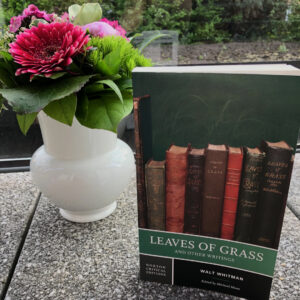
Octavia Butler (born Octavia Estelle Butler) was born on June 22, 1947 in Pasadena, California (USA) in a poor family. Her father died when she was still a child so she was raised by her grandmother and her mother, who had to work very hard to support the family.
It was her dear mother who encouraged Octavia to read. She would take home books that her employers threw away for her daughter to read.
Although she was born a dyslexic, she overcome her learning problems and studied at the University of California at Los Angeles, as well as at the California State University. Later on, she graduated with an associate degree from the Pasadena City College.
Olivia Butler started writing in the 1970s although she wrote her first stories at the age of 10. Her first novel was “Patternmaster” (1976). This was later included in the four-volume “Patternist series” together with “Mind of My Mind” (1977), “Wild Seed” (1980), and “Clay’s Ark” (1984). Another of her books from those years was “Kindred” (1979), which catapulted her career.
RECOGNITION
Critics started to recognize her work in the mid-1980s. They awarded her the 1984 Best Short Story Hugo Award for “Speech Sounds”. Furthermore, she also received the same year, the Nebula Award and later the Hugo Award for his novelette “Bloodchild”.
Later on, she published another series called the “Xenogenesis trilogy” which includes “Dawn” (1987), “Adulthood Rites” (1988) and “Imago” (1989). Critics widely acclaimed this series.
Another of her series was “the Parable series” which includes “Parable of the Sower” (1993) and “Parable of the Talents” (1998). “Parable of the Trickster” should have been the third installment but Butler could not finish it due to her writer’s block.
Butler also published her short stories in 1995 in a book called “Bloodchild and Other Stories”. That same year, she received a “genius” grant from the MacArthur Foundation, being the first science-fiction writer to ever receive it. Later on, in the year 2000, she was given a PEN Award for her lifetime achievement.
Four years later, and after her mother had died, she decided to move to Seattle (Washington) where she struggled with writer’s block. At the same time, her health was declining, and she had a hard time finishing another book. However, in 2005, she published her last work, “Fledgling”.
Octavia Butler died on February 24, 2006 in Seattle, Washington (USA) when she was only 58 years old. The cause of her dead is unclear.
THE GRAND DAME OF SCIENCE-FICTION
Her stories, although set in a futuristic world, often depicted characters from minority groups. She used Science-Fiction to address the universal topics that define humanity, like gender, sex, and race writing in a fluent and complex style.
Furthermore, her style was unique because she was a master in blending science-fiction elements with African-American spiritualism and mythology.
She was known as “The Grand Dame of Science-Fiction” in a genre dominated by white males. So, as a black woman, Olivia’s success was even more satisfying and comforting. She has been a model for many African-American women who struggle to have success in the science-fiction genre.
“Sometimes I wrote things because I couldn’t say them, couldn’t sort out my feelings about them, couldn’t keep them bottled inside me.”
“Kindred”, 1979.



